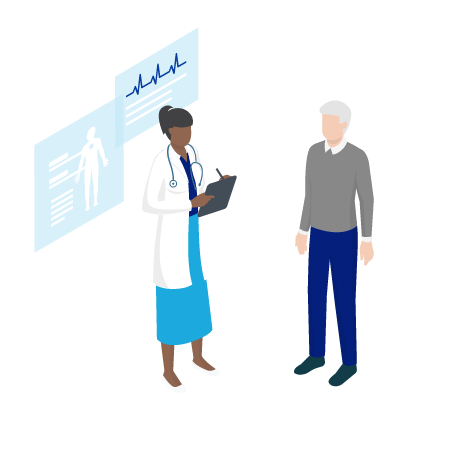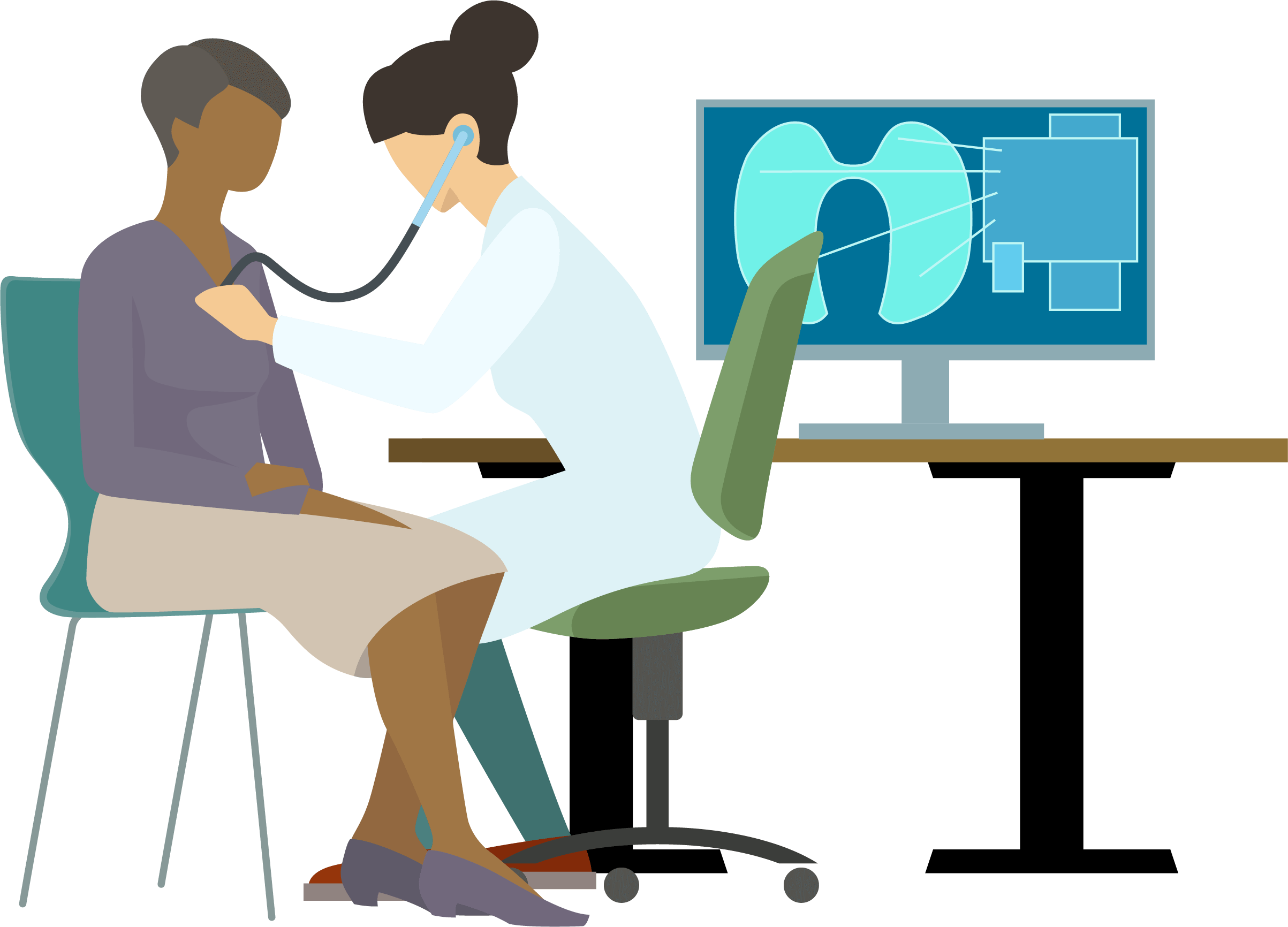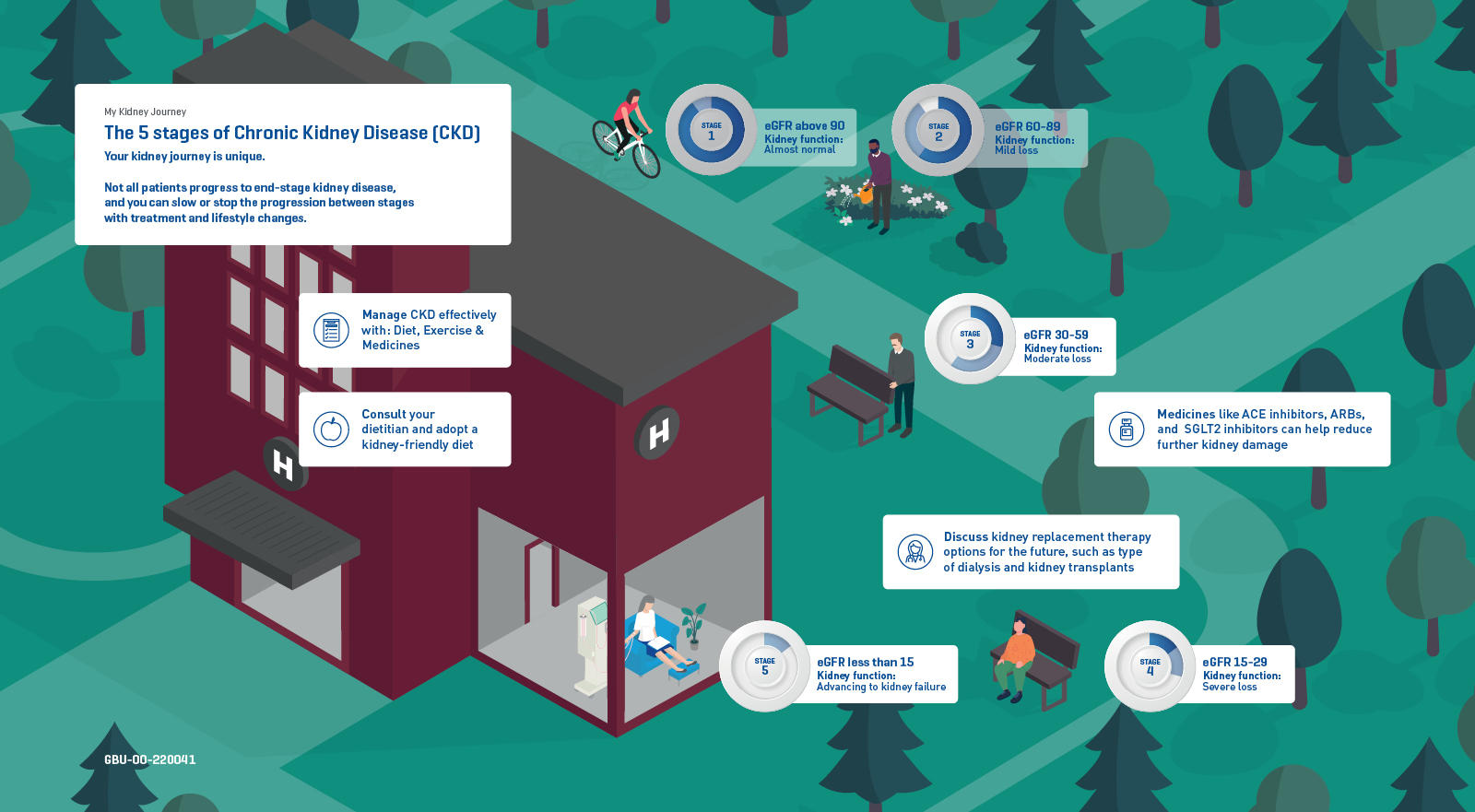Chronic Kidney Disease: Stage 3
Chronic kidney disease (CKD) is a condition in which kidney function declines gradually over time and can possibly lead to kidney failure in some patients. As CKD progresses, the kidneys are unable to filter toxins and excess fluid from the body, leading to the onset of symptoms and the risk of developing other health problems. The term “chronic” does not refer to the severity of the disease but refers to the fact that it is a long-term condition which progresses over years. Treatment for CKD involves slowing its progression and managing related complications.
The 5 stages of chronic kidney disease
Chronic kidney disease (CKD) is divided into 5 stages based on kidney function, and whether there are signs of blood or protein in the urine.
During stage 1, your kidneys are working at an almost normal level, but there may be blood or protein in the urine. There are no symptoms of CKD itself, but there may be symptoms of the underlying diseases causing the CKD, such as diabetes or a glomerulonephritis.
As CKD progresses to stage 2, the loss of kidney function is still mild, and symptoms have not developed. However, people with for example diabetes are often diagnosed during CKD stage 2 and will start on treatment to help reduce the risk of CKD worsening. CKD stage 3 is a key stage when symptoms may first occur, or kidney disease may be first diagnosed.
At this stage, treatment should be undertaken to slow the progression of the disease. Many people live with stage 3 CKD, with only some progressing to the advanced stages. Regardless, undergoing regular assessment and treatment is important to prevent the progression.
CKD stage 4 means there is advanced kidney damage, with a high risk of progression to kidney failure and there need to be discussions and planning for replacing kidney function with dialysis. On the other hand, stage 5 indicates kidney failure, also called end-stage renal disease or end-stage kidney disease, where replacing kidney function will need to start.
An overview of stage 3 kidney disease
At CKD stage 3, your kidneys have been moderately damaged therefore, they are not filtering salts and toxins optimally and maintaining fluid balance may be a problem.
Based on the level of kidney function, this stage is further split into two sub-stages: CKD stage 3a, and CKD stage 3b but this does not really affect the treatment you will be getting.
At this stage, your doctor will be closely monitoring you to see if there is protein in the urine, as higher amounts of protein can mean more risk of CKD progression and an increased need for specific treatments.
Symptoms of stage 3 kidney disease
CKD is really a silent condition as it does not display any symptoms during the early few stages. The first symptoms typically only begin to appear in stage 3 or later once the decline in kidney function leads to notable toxin and fluid buildup in the body.
The symptoms of CKD stage 3 may include:
- Fatigue
- Swelling in your hands and feet
- Change in urine color or amount
- Muscle cramps
- Itch
- Poor appetite
These symptoms may not occur at all or at the same time and may appear only gradually as CKD progresses. However, it is important to be aware of the symptoms of kidney failure during each stage, including what you may experience and why.
Your doctor will also be performing blood and urine tests regularly to gauge your CKD stage and its risk of progression.

Treatment for stage 3 kidney disease
Treatment for CKD stage 3 is aimed at slowing down the rate of progression and managing the health issues caused by declining kidney function.
Drugs such as ACE inhibitors, ARBs and now SGLT2 inhibitors are effective at reducing further kidney damage and slowing down the progression of CKD. Other treatments and changes in diet may also be required for possible health issues that develop due to CKD, such as anemia or high salt levels. However, there is no requirement for dialysis during stage 3 CKD.
Managing stage 3 kidney disease
Once diagnosed with CKD stage 3, it is important that you make some lifestyle changes and work with your doctor to optimally manage your condition. At this stage, your regular doctor is likely to refer you to a kidney specialist, a nephrologist, to oversee your care in the long run.
Depending on your overall health, the required lifestyle changes can differ, but typically these will include specific changes to your diet, moderate exercises, quitting smoking and limiting alcohol consumption, maintaining a healthy weight, monitoring your general condition, and any other recommendations that your healthcare team may have for you.
Diet
Diet is an important part of managing your kidney disease. Since kidneys are responsible for filtering out toxins and excess fluid from your body, what you consume has an impact on how much your kidneys need to work. When your kidneys are damaged, there may be a need to change your diet. For CKD stage 3, nutritional requirements vary between individuals. It is important to gain advice from a dietitian who can help create a kidney-friendly diet plan that fits your specific requirements.
Exercising
Exercise is key to remaining healthy and it is no different once being diagnosed with CKD. Regular exercise can also help manage other conditions, such as blood pressure and diabetes. At CKD stage 3, you will be able to exercise normally as before and even start a new exercise routine. Discuss your exercise routine with your healthcare team and follow the recommendations.
Regular monitoring
Monitoring your health is important at this stage. Your own primary care doctor will typically help manage your overall health and keep an eye on conditions such as high blood pressure and diabetes, whereas your nephrologist will see you at regular intervals to assess the progression of your kidney disease.

Outlook for stage 3 kidney disease
At CKD stage 3, your kidneys are moderately damaged and kidney function has declined. Treatments can be effective in slowing down the progression of CKD and managing other health issues.
Stage 3 is still far from kidney failure, and a diagnosis at this stage can help improve the outlook as treatment can be commenced and the progression monitored carefully. It is possible to stay on CKD stage 3 for years with your kidney disease not progressing to end stage kidney failure.
